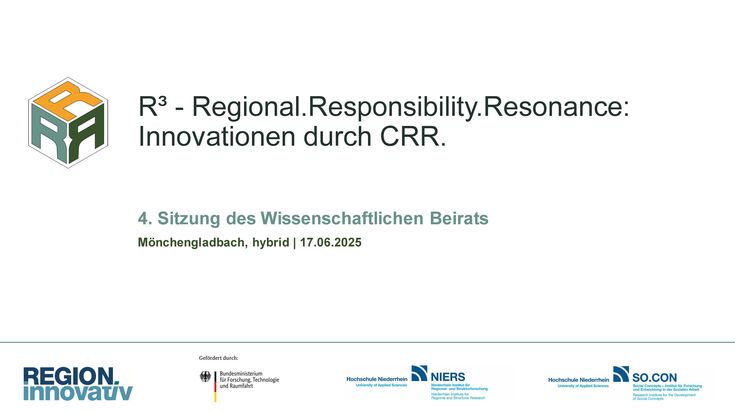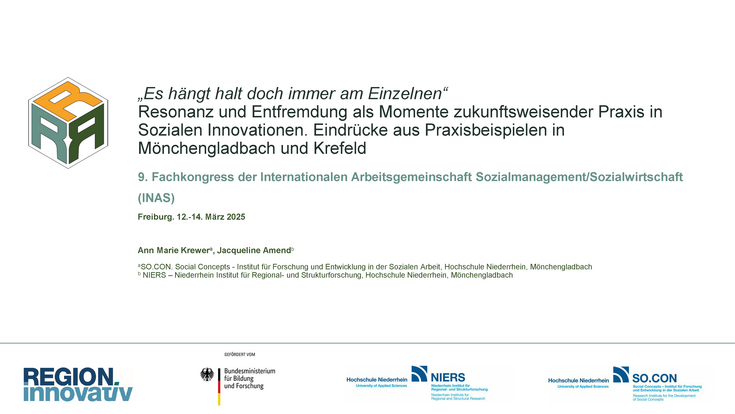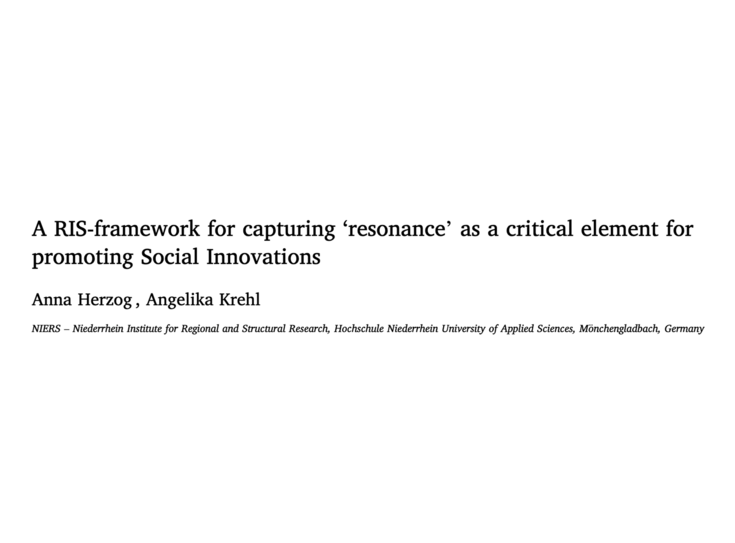Economic structural change is not a new phenomenon. Numerous regions are or were affected by it. The textile industry - once created in response to the decline in domestic mining - disappeared from the mid-1950s onward, for example, in the Lower Rhine, in the Swabian Alb and in other low mountain regions in Germany, as well as in the British city of Manchester, which lost not only its textile industry but also its heavy industry.
What remains are outdated structures; the affected regions are then considered "structurally weak." But what does it mean for a compensation-oriented structural policy if there are no structures left, or at least no structures that are capable of being expanded and have a future? New structures are needed, which must first be created. Traditional economic innovations, such as product and process innovations, are proving rather difficult; the endogenous potential there seems to lie in social innovations.
So how can resonances be created, innovations triggered and change successfully shaped in structurally weak regions through commitment oriented toward the common good? This is the question addressed by the project "R³ - Regional.Responsibility.Resonance: Innovations through Corporate Regional Responsibility", which is funded by the BMBF under the REGION.innovativ funding line.









![[Translate to Englisch:] 2. Sitzung Transferbeirat [Translate to Englisch:] 2. Sitzung Transferbeirat](/fileadmin/_processed_/6/5/csm_20240223_2_Sitzung_Transferbeirat_207f908f15.png)
![[Translate to Englisch:] Titelbild des Gastvortrages bei Ringvorlesung [Translate to Englisch:] R3 Gastvortrag bei Ringvorlesung](/fileadmin/_processed_/c/6/csm_Titelfolie_Ringvorlesung_6c4088610d.png)
![[Translate to Englisch:] 2. Sitzung wissenschaftlicher Beirat [Translate to Englisch:] 2. Sitzung wissenschaftlicher Beirat](/fileadmin/_processed_/e/3/csm_20231213_wissenschaftlicher_Beirat_Sitzung_6464374562.png)
![[Translate to Englisch:] Rheinische Post berichtet über R³ [Translate to Englisch:] Rheinische Post berichtet über R³](/fileadmin/_processed_/1/d/csm_20231027_Rheinische_Post_berichtet_ueber_R3_944af41b7f.png)
![[Translate to Englisch:] Teilnahme am DKG '23 in Frankfurt/Main [Translate to Englisch:] Teilnahme am DKG '23 in Frankfurt/Main](/fileadmin/_processed_/5/f/csm_20230922_DKG_AKS_0f3de11ef1.jpg)
![[Translate to Englisch:] Statustagung „REGION.innovativ“ [Translate to Englisch:] Statustagung „REGION.innovativ“](/fileadmin/_processed_/0/c/csm_20230901_Statuskonferenz_Berlin_2_7ddf7ba1c4.jpg)
![[Translate to Englisch:] Vortrag auf der EURA Konferenz 2023 [Translate to Englisch:] Vortrag auf der EURA Konferenz 2023](/fileadmin/_processed_/1/c/csm_20230622_EURA23_a3620e3265.jpg)






















